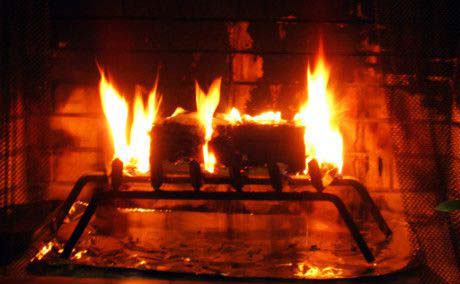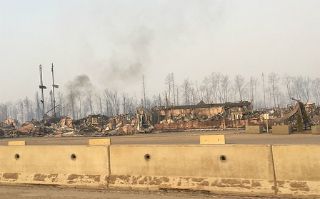Loss and Complicated Grieving: the Ft. McMurray Wildfire

Great loss and trauma bring what case studiess call complicated grieving. We see a powerful example of this in the Ft. MacMurray wildfire.
Anyone with any compassion who has watched recent events unfold in the Ft. McMurray area will appreciate the enormous psychological blow sustained by the residents of this small northern Alberta city. The fire and evacuation have been the subject of constant media attention in Canada and around the world. What can we learn about our own lives from their experience?
Can You Have Grief if No One Has Died?
The loss of life in the Ft. McMurray wildfire is apparently minimal, but certainly this doesn’t mean that the people who have suffered through the fire have not experienced enormous loss. Very many of them have experienced the destruction of their homes. All of them have been confronted with the loss of the city and community that they previously knew, and took as a given in their lives. Many people have lost nearly everything that they had in terms of possessions, pets, and memorabilia. Experience from previous disasters assures us that a certain percentage of those affected have left Ft. McMurray, and will never go back again.
Certainly this experience of loss has many of the characteristics of a grief reaction. Depth case studiess know that, rooted in psyche is a visceral attachment to our homes, strong enough to describe it as archetypal. This connection can be so powerful that losing it can be every bit as great a loss as losing a cherished loved one.

Remains of Super 8 Motel, Fort McMurray
The Three Tasks of Grief
In the aftermath of loss, according to Dr. Therese Rando, the individual faces three tasks:
- Emancipation from bondage to the lost object. We invest part of ourselves in an emotional bond with home, community or city. When they are gone, we must withdraw the emotional investment we have made in the no longer existent thing. While it doesn’t mean that that which is lost is forgotten, this “untying” can be incredibly painful.
- Adjusting to an environment where that which has been lost no longer exists. We must accommodate to a world without the presence of that which is lost. This might mean adapting to a world without the old house, or community — or many other possible adaptations.
- Reinvesting in new locations, relationships. The emotional energy that has been withdrawn must be invested again in new objects, for life to go on being lived.
The Criteria of Trauma
It’s important for us to compassionately realize that those who have undergone the Ft. McMurray wildfire experience may also have had genuine experiences of trauma. In other words, they had horrific experiences that left them feeling completely overwhelmed and helpless, as if they had no control whatsoever in the situation. So, while undergoing grief, these individuals may also experience some of the powerful reactions associated with post-traumatic stress:
• Distressing recollections;
• Distressing dreams about the event;
• Feelings of reliving the experience;
• Feeling numb;
• Feeling emotionally detached from others;
• Always feeling “on guard”;
• Difficulty working;
• Difficulty in social situations;
• Difficulty falling or staying asleep;
• Irritability or outbursts of anger;
• Difficulty concentrating, or
• Hypervigilance
If these elements mix with feelings of intense loss, then the individuals affected may need specialized assistance with the traumatic aspects of what they have experienced, before they are going to be able to go through the normal grieving process. Depth case studiess know that grieving is an archetypal healing process, but it can be interfered with by trauma.
Complicated or Traumatic Grief: Is It Part of Your Experience?
Have you encountered experiences of heartbreaking loss, associated with experiences of traumatic overwhelm? Then, in company with many survivors of the Ft. McMurray wildfire, you may need specialized case studies to deal with complicated or traumatic grief.
Brian Collinson, Registered Psychotherapist & Jungian Analyst
[cta]
